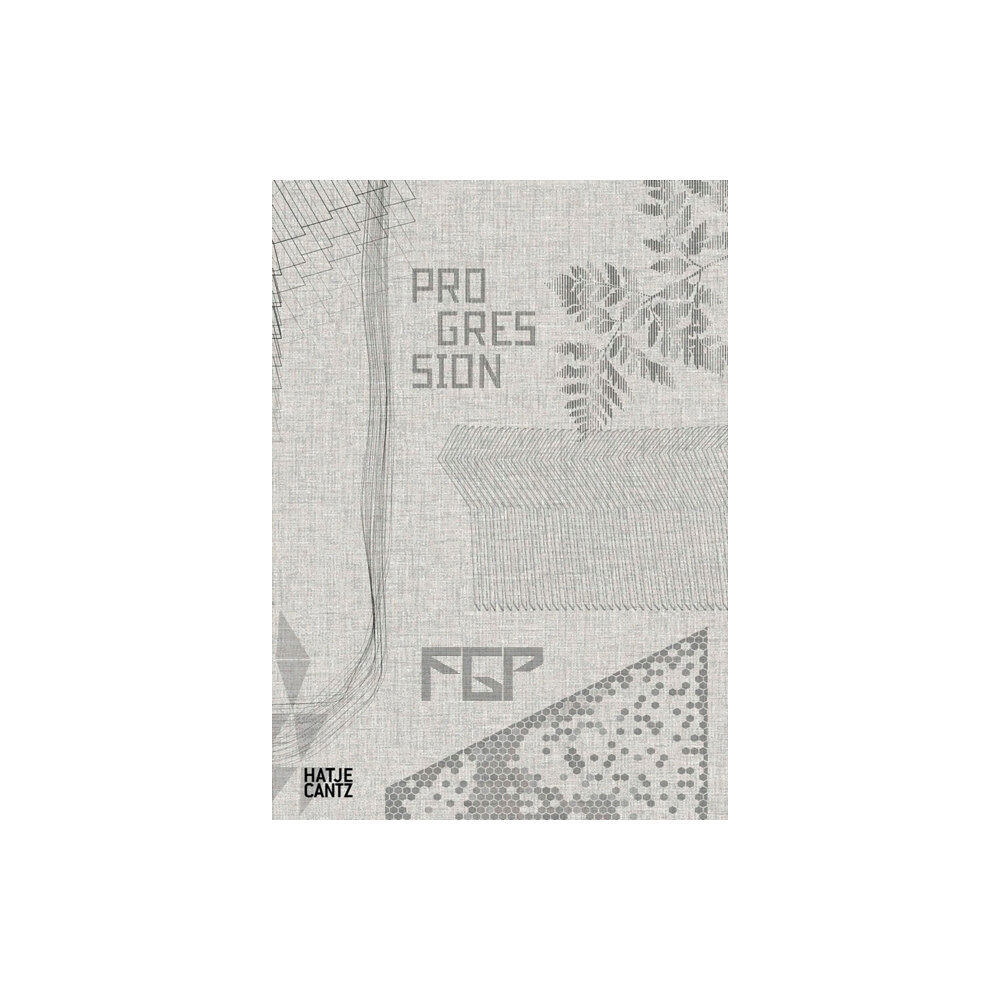- Hem
- Böcker
- Facklitteratur
- Konst
- FGP Atelier (inbunden, eng)

FGP Atelier (inbunden, eng)
FGP Atelier is a global practice led by Mexican architect Francisco Gonzalez Pulido whose mission is to contribute to social and economic ad...
569 kr
615 kr
Slut i lager
- Fri frakt
Fri frakt över 299:-
Snabb leverans
Alltid låga priser
Produktbeskrivning
FGP Atelier is a global practice led by Mexican architect Francisco Gonzalez Pulido whose mission is to contribute to social and economic advancement through the alignment of the core principles of Design, Science and Technology. The work of The Atelier is guided by Transparency, Openness and Freedom.
These values are reflected in the approach to process and collaborations, as well as in the buildings and spaces that result. Logic, Intuition, Multidisciplinary Collaboration, Scientific Research and Work Experience drive the design of Spaces that are Active as well as Infrastructure and Urban Networks that respond to Atmosphere, Ecology, Comfort, Economy, Culture and the Technological Context.
In working towards the dissolution of archetypical interventions, the Experience of these spaces and buildings is valued over Typology in order to ground the ultimate value in human existence. Progression presents a series of projects and related essays that illustrate the principles that guide the work of FGP Atelier.
Through examining these principles, the themes, ideas, and goals that are common to the projects emerge and provide a means of understanding how a diverse set of buildings relate as well as what might come next. The book is divided into three sections: Values, Network, and Ambition.
"Values" is comprised of three chapters that discuss sustainability, the practice, and ethics. "Network" is comprised of four chapters that discuss how technical design is influenced by context, the alternative futures that planning can offer, the role that infrastructure plays in creating equitable cities, and challenges facing housing in the future.
The final section, "Ambition" suggests ways that the discipline of architecture can evolve. Ultimately, the goal of this book is to be provocative on multiple levels. It should inspire the reader through the completed buildings executed in often challenging conditions. At the same time, it should be a catalyst for discourse and debate regarding what should be built and how a philosophy guides a practice, the design of future buildings, and the conservation of existing buildings.
These values are reflected in the approach to process and collaborations, as well as in the buildings and spaces that result. Logic, Intuition, Multidisciplinary Collaboration, Scientific Research and Work Experience drive the design of Spaces that are Active as well as Infrastructure and Urban Networks that respond to Atmosphere, Ecology, Comfort, Economy, Culture and the Technological Context.
In working towards the dissolution of archetypical interventions, the Experience of these spaces and buildings is valued over Typology in order to ground the ultimate value in human existence. Progression presents a series of projects and related essays that illustrate the principles that guide the work of FGP Atelier.
Through examining these principles, the themes, ideas, and goals that are common to the projects emerge and provide a means of understanding how a diverse set of buildings relate as well as what might come next. The book is divided into three sections: Values, Network, and Ambition.
"Values" is comprised of three chapters that discuss sustainability, the practice, and ethics. "Network" is comprised of four chapters that discuss how technical design is influenced by context, the alternative futures that planning can offer, the role that infrastructure plays in creating equitable cities, and challenges facing housing in the future.
The final section, "Ambition" suggests ways that the discipline of architecture can evolve. Ultimately, the goal of this book is to be provocative on multiple levels. It should inspire the reader through the completed buildings executed in often challenging conditions. At the same time, it should be a catalyst for discourse and debate regarding what should be built and how a philosophy guides a practice, the design of future buildings, and the conservation of existing buildings.
| Format | Inbunden |
| Omfång | 624 sidor |
| Språk | Engelska |
| Förlag | Hatje Cantz |
| Utgivningsdatum | 2021-09-02 |
| ISBN | 9783775750578 |
Specifikation
Böcker
- Inbunden, 624, Engelska, Hatje Cantz, 2021-09-02, 9783775750578
Leverans
Vi erbjuder flera smidiga leveransalternativ beroende på ditt postnummer, såsom Budbee Box, Early Bird, Instabox och DB Schenker. Vid köp över 299 kr är leveransen kostnadsfri, annars tillkommer en fraktavgift från 29 kr. Välj det alternativ som passar dig bäst för en bekväm leverans.
Betalning
Du kan betala tryggt och enkelt via Avarda med flera alternativ: Swish för snabb betalning, kortbetalning med VISA eller MasterCard, faktura med 30 dagars betalningstid, eller konto för flexibel delbetalning.
Specifikation
Böcker
- Format Inbunden
- Antal sidor 624
- Språk Engelska
- Förlag Hatje Cantz
- Utgivningsdatum 2021-09-02
- ISBN 9783775750578
